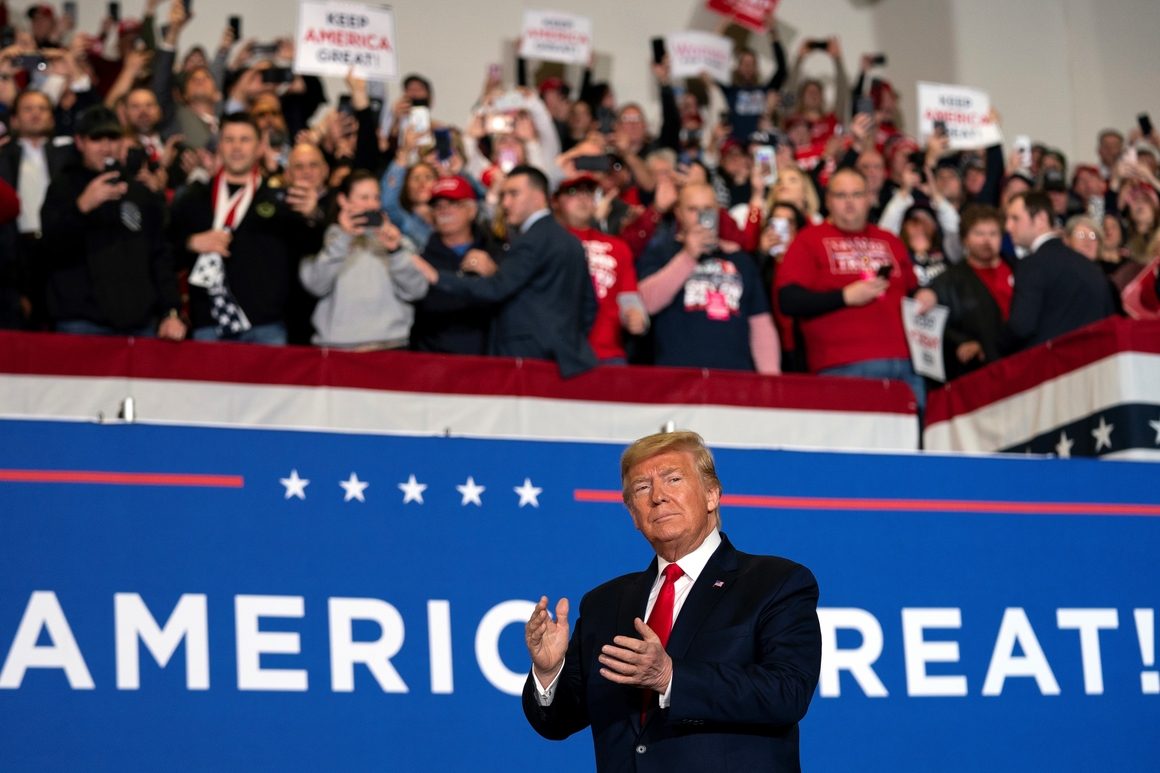
To a skeptic, this realization—that partisans behold Trump as a symbol of masculine virtue—is a curiosity, to put it mildly. To put it less mildly: the notion of Trump as the ideal of American manhood is radically disorienting.
Never mind what one thinks of trade wars, or immigration, or whether his Ukraine intervention meets the criminal standard of a quid pro quo. Simply on stylistic grounds, Trump represents the opposite of the traditional 20th century masculine ideal, as mythologized on movie screens, on battlefields, in athletic stadiums. So the transformation in the American mind—or at least in the conservative mind–of what it means to be a strong leader and a strong man counts as one of the more profound cultural and political shifts of the past generation. The impeachment battle puts this underappreciated shift in an especially sharp light.
In the 20th century tradition, strong men were supposed to be laconic, stoical, self-effacing. They might secretly enjoy publicity but the standard pose was to feign indifference or even disdain. Trump, by contrast, is flamboyant, boastful, desperate for acclaim, loud in protest when he doesn’t get it.
In the 20th century tradition, strong men didn’t complain about their circumstances. Trump is relentless in whining about his burdens, including the claim that he has been treated more unfairly than any president in history.
In the 20th century tradition, strong men were supposed to elevate team and cause above self. Trump’s presidency has been consistent with the cult-of-personality pledge he made in his 2016 GOP acceptance speech, “I alone can fix it.” Strong men, likewise, are supposed to show self-discipline in all aspects of life. Trump celebrates impulsiveness and free-roaming appetites in every arena, from his tweetstorms that often come at a hundred bursts or more a day, to his abundant record of extramarital affairs, to his expanding physical girth.
Above all, the American Man of myth, in years past, had a complex relationship with violence. He was ready to use it, as in countless war movies and Westerns—but usually with an air of last-resort reluctance.
Trump, by contrast, has made rhetorical celebration of violence one of his signatures. To the cheers of supporters, he has urged security goons to get rough with protesters at rallies. In taunting schoolyard language, he has bragged about the power of U.S. nuclear arsenal and his readiness to use it in confrontations with North Korea.
Most breathtakingly, Trump weighed in on behalf of court-martialed Navy SEAL Eddie Gallagher, who was accused of killing a prisoner of war with a hunting knife and then posing for a photo with the body. “We train our boys to be killing machines, then prosecute them when they kill,” Trump tweeted in October about Gallagher, who he invited and met with over New Year’s at Mar-a-Lago.
What to make of this all? One obvious point to note about Trump repudiating the 20th century ideal of American manhood is that it is no longer the 20th century. But there is a paradox: Trump’s movement draws on nostalgia for a lost era, even as he personally represents a highly distorted version of the old virtues.
For insight, I checked in this week with three well-known authors who in different ways have made themselves authorities on these old virtues. I worked with all three in my years at the Washington Post. All three have won the Pulitzer Prize.
David Maraniss wrote a best-selling biography of legendary football coach Vince Lombardi. Rick Atkinson has written histories of World War II and the Revolutionary War, with special emphasis on illuminating the characters of generals and average soldiers alike. Glenn Frankel has written histories of two classic Westerns—“The Searchers” and “High Noon”—and their iconic male stars, John Wayne and Gary Cooper.
Their subjects might be quite different but one theme is the same. All three wrote about notions of virtue, leadership, and success as it exists in American history and in American myth.
“The contradiction,” Maraniss told me, “is that the people who are so adoring of Trump’s breaking of every norm and code of honor will still uphold and believe in that model of a better and innocent past.”
Source: politico.com
See more here: news365.stream






